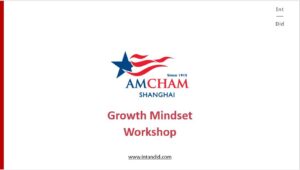The Power of a Structured Onboarding Plan
The first few weeks in a new role are crucial for employee success, and a structured onboarding plan is key to ensuring new hires feel welcomed, supported, and prepared. Onboarding isn’t just about paperwork or training—it’s about setting clear expectations, aligning new hires with company culture, and ensuring they are ready to hit the ground running.
A well-executed onboarding process leads to:
- Faster ramp-up times and quicker productivity.
- Higher employee engagement and job satisfaction.
- Better retention rates by showing new hires that you value their success.
- Stronger alignment with company values and goals.
In our R.E.D. Community in Shanghai, we recognize the value of a well-structured onboarding process in setting employees up for long-term success. During our R.E.D. discussions, successful onboarding is one of the potential topics our HR members may choose to explore—allowing them to exchange insights, share best practices, and learn from one another’s experiences.

5 Key Elements of a Structured Onboarding Plan
To ensure a successful transition for new hires, a structured onboarding plan should include these five key elements—each with practical strategies you can apply on the job:
1. Clear Expectations
Set job responsibilities and performance goals from day one. Provide a written job description, review it together with the new hire, and outline the 30-60-90 day goals so they know what success looks like early on.

2. Culture Integration
Help new hires understand your company’s values and mission. For example, we provide each new employee with a Core Values Book on day one, which outlines what we stand for and how we work. During their first week, they attend a Core Values Training to dive deeper into the company culture. We also assign a Core Values Buddy—a peer who embodies our values—to support the new hire by sharing real-life stories and day-to-day examples of how our team brings these values to life.
3. Comprehensive Training
Equip new hires with the tools, systems, and knowledge they need to succeed. This might include technical training, role-specific modules, shadowing opportunities, and access to a centralized knowledge base or LMS.


4. Introductions
Facilitate structured introductions to key team members, cross-functional partners, and leaders. Schedule 1:1s or informal coffee chats so the new hire can build connections and understand team dynamics from the start.
5. Regular Check-Ins
Set up consistent check-ins during the first few weeks and months. These can include weekly one-on-one meetings with their manager, a 30-day feedback session, and a 90-day review to ensure alignment and adjust the onboarding plan as needed.

R.E.D. Community’s Role in Onboarding
In the R.E.D. Community, HR leaders come together to exchange knowledge and align on best practices that strengthen the onboarding experience. Onboarding is a critical moment in the employee lifecycle, and R.E.D. provides a dedicated space for professionals to reflect on what truly makes this phase impactful.
Through ongoing collaboration, R.E.D. members explore key themes such as cultural integration, communication strategies, and the importance of early engagement. These discussions help identify common challenges and surface proven approaches, enabling members to return to their organizations with renewed insight and clarity.
This peer-driven learning approach encourages HR professionals to think critically about how onboarding can be more than just a process—it becomes an opportunity to reinforce company identity, build trust, and set a strong foundation for long-term success.
By shaping thoughtful, people-centered onboarding strategies together, R.E.D. members contribute not only to stronger individual companies, but to a more connected and empowered HR community as a whole.

Join R.E.D. to connect with HR leaders and learn how to optimize your onboarding process!
Related Articles




